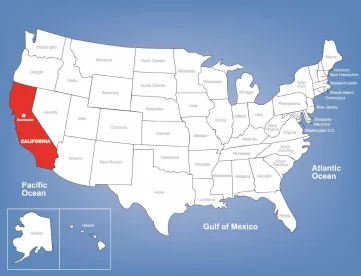Since the United States Supreme Court issued its decision in Viking River Cruises, Inc. v. Moriana in June 2022, trial courts in California have grappled with how to address the non-individual portion of a plaintiff’s PAGA claim that remains in court when a plaintiff’s individual PAGA claim is compelled to arbitration.[1] Most trial courts have found it appropriate to stay the non-individual portion of the PAGA claim until the arbitration’s conclusion because that outcome would determine whether the employee retains standing to proceed in court. On July 17, 2023, in the highly anticipated decision of Adolph v. Uber Technologies, the California Supreme Court addressed several questions in the post-Viking River landscape, including the propriety of staying non-individual PAGA claims pending the completion of arbitration.
In Adolph, the plaintiff worked as a food delivery driver for the defendant’s Uber Eats platform. As a condition of employment, the plaintiff was required to sign an arbitration agreement that also waived his right to bring a representative PAGA action on behalf of himself or others similarly situated. Despite the waiver, the plaintiff filed an amended complaint seeking PAGA penalties based on various alleged Labor Code violations. Uber unsuccessfully attempted to compel arbitration of plaintiff’s PAGA claims (before Viking River had issued). The California Court of Appeal affirmed the trial court’s ruling, finding that Uber’s PAGA waiver violates public policy. In May 2022, Uber filed a petition for review by the California Supreme Court. However, before the plaintiff could answer, the United States Supreme Court decided Viking River.
In Viking River, the Court generally held that the Federal Arbitration Act preempts California law to the extent that it precludes arbitration of an employee’s individual PAGA claims. Viking River also stated that an employee loses standing to pursue a PAGA claim in court once his or her individual claims have been committed to arbitration—a question of state statutory standing on which the United States Supreme Court is not the final arbiter.
In Adolph, the California Supreme Court disagreed with the United States Supreme Court in part. Adolph first emphasized that Viking River did not disturb California’s rule that a “predispute categorical waiver”—or a “wholesale waiver”—of the right to bring a PAGA action is unenforceable. Contrary to Viking River, Adolph also holds that “aggrieved employees” under PAGA do not automatically lose standing to litigate non-individual PAGA claims in court when they are compelled to assert their individual PAGA claims in arbitration. At the same time, consistent with an emerging consensus among trial courts, Adolph confirmed that the court proceedings may be stayed until the conclusion of the arbitral proceedings. As the Adolph Court observed, “no convincing argument” had been put forward why it would be “impractical” for the trial to stay further court proceedings pending the arbitration’s resolution. While Viking River did not neuter PAGA in the way many employers may have hoped, Adolph suggests that employers may continue to have success enforcing properly drawn arbitration agreements without having to fight a two-front war. Employers are encouraged to consult with counsel to ensure that their arbitration agreements properly account for the principles set forth in Viking River and Adolph.
[1] PAGA” means the California Labor Code Private Attorneys General Act of 2004, Cal. Lab. Code §§ 2698, et seq.





 />i
/>i

